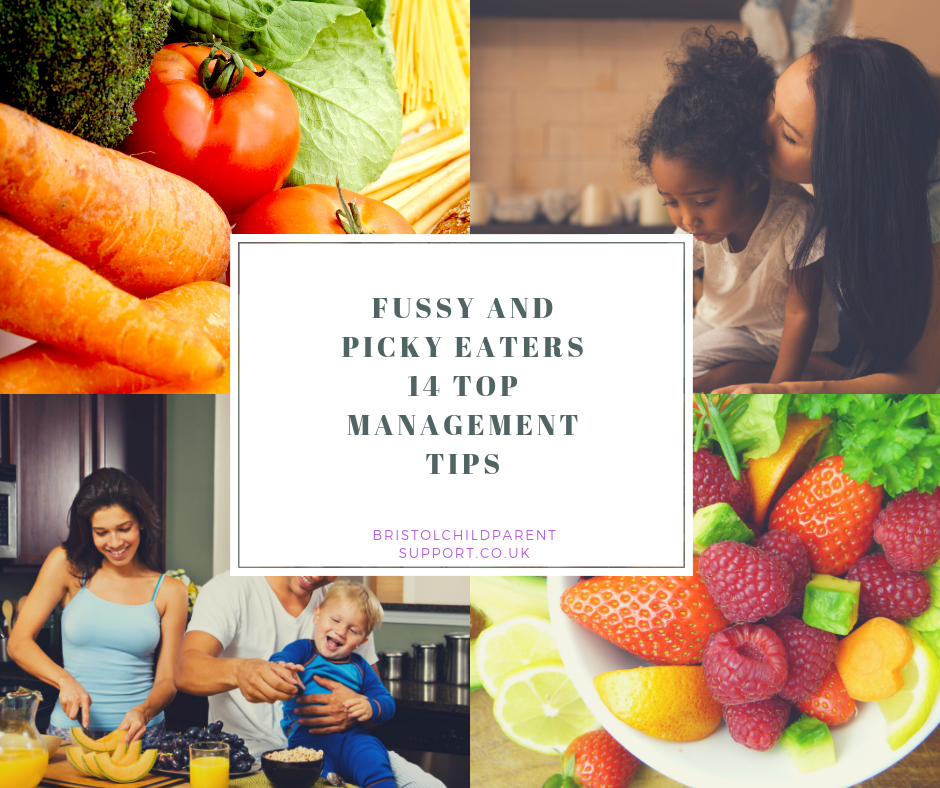I’ve spent many years working with Eating Disorders in my old life in CAMHS, so I am really keen to promote good eating practices with your fussy or picky eater and some advice on making mealtimes relaxed and happy.
The good news is, many children go through times when they pick at foods and don’t want to eat or drink certain things. It’s common for younger children to be “fussy” sometimes it’s simply a way for them to assert their independence and find ways they can control their environment. It often happens around the age of two and can be a stressful time for you but actually, most children grow of it.
Why do children get picky at this age?
Gwen Dewar reports from the Science of Parenting notes:
- Children’s tastes are less tolerant of bitter foods
- Children are pre-wired for energy rich foods
- Other people may have a genetically-based predisposition to avoid new foods.
- They have developed tastes from breast milk
- Picky eaters may be influenced by social cues, parental feeding tactics, and the ways that new foods are presented. I am not sure this is true but remember reading somewhere you have to offer your child new food nine times prior to them accepting it. Most parents give up, and this means you may offer them a reduced diet.
When it’s something Else?
Some children’s fussy eating continues way past the toddler stage, professionals call these eating habits extreme faddy or fussy eating, selective eating, perseverant eating, restrictive eating or autism-like selective eating.
It is common in children with social communication disorders such as autism, but also sometimes occurs in children with sensory issues, allergies, and food intolerances. Extreme faddy eating can cause growth problems, nutritional deficiencies (particularly if a whole food group is avoided),
Top 14 Ideas to Help Your Picky Eater
- Look at your child’s diet, is it varied enough?
- Offer food in small portions, don’t overwhelm them by offering large portions, they can always ask for more.
- Don’t offer lots of milk or drinks 30 minutes prior to food, it can fill them up.
- Ensure that you offer the new food more one or two times and maybe pair it with the food they really like.
- Toddlers have strange eating habits, sometimes they are starving and at other times they simply don’t want any food. Think about what mealtimes may be the best time to offer the new food
- If you are feeling stressed about it, they will too, so make mealtimes relaxing and enjoyable. Don’t pressure them to eat and don’t get into control battles over food. Please don’t punish by withholding sweet foods, it will backfire and is not effective.
- Invite friends or family around at mealtimes if that supports you, have mealtimes together, this will encourage your child to eat.
- Look out for sore tummies, loose tools with certain foods, your child may be suffering from wheat or dairy intolerance.
- Prepare the food with your child present, if they can help you cut vegetables or fruit, this will encourage them to eat the food you’ve prepared together. Go shopping for the food together
- Makeup stories and use play people or animals to try to explain how good it is to eat a varied diet.
- Make it fun, one very lovely OT I worked with had all sorts of great names for fruits and vegetables.
- Give your child praise, lots of praise when they try something, it really helps.
- Use the superpower person in them, to beat the fussy eating.

Support
Your health visitor may help you if you are worried about your toddler. For an older child, go to your GP and have your child weighed and his height measured, this is when they can calculate a BMI and have a blood test too to assess whether they are underweight or may have some mineral deficiency. Some hospitals have dietitians that specialize in this or specific clinics but it is variable around the country. Occupational Therapists, offer support to children with sensory issues, Contact me if you are struggling and are unable to seek help from elsewhere.





